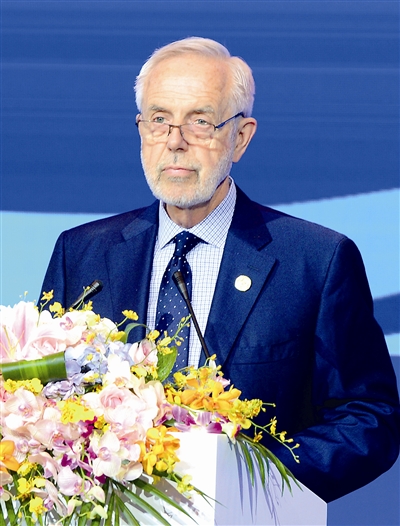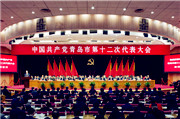Standards make cities smarter
( chinadaily.com.cn )
|
|||||||||
"Standards Make Cities Smarter", the theme of the 2017 Qingdao Forum on International Standardization, which is identical to that of this year's World Standards Day, Oct 14, reflects society's vigorous pursuit of modern cities with efficiency, safety, higher quality and sustainable development.
High-ranking officials from the IEC, ISO and ITU, the world's top three standards organizations and other peer institutions from different countries and regions had a robust exchange of views on this issue at the Qingdao Forum on International Standardization on June 28.
 |
|
John Walter, president-elect of the International Organization for Standardization (ISO), delivers a speech at the 2017 Qingdao Forum on International Standardization on June 28. [Photo/dailyqd.com] |
John Walter, President-elect of the International Organization for Standardization (ISO)
A 'Smart City' might be described as one that dramatically increases the pace at which it improves its sustainability and resilience by fundamentally improving how it engages society, how it applies collaborative leadership methods, how it works across disciplines and city systems, and how it uses data and integrated technologies to transform services and quality of life to those in and involved with the city including residents, businesses and visitors.
There are misconceptions on what standards are for and the case for use of standards has not been made.
Cities act independently, and a generic approach (as opposed to an individual city approach) is needed to develop a more functional market.
The pace of technological advancement is putting intense pressure on cities and on Standards Development Organizations (SDOs) to provide guidance for them.
Society is not sufficiently engaged in city operations and specific leadership has not yet been identified.
The ISO Standards Advisory Group (SAG) suggests that in order to build smart cities, engagement between SDOs and the broader market should be improved. Strategic dialogue and bilateral agreements should be set up with key stakeholder groups to increase relevance in the market. In order to develop a coherent portfolio of guidance material on smart cities, a leadership role within the SDO community should be taken. Coordination within the ISO on the smart cities agenda should be improved to reap greater levels of internal efficiency and market effectiveness.




